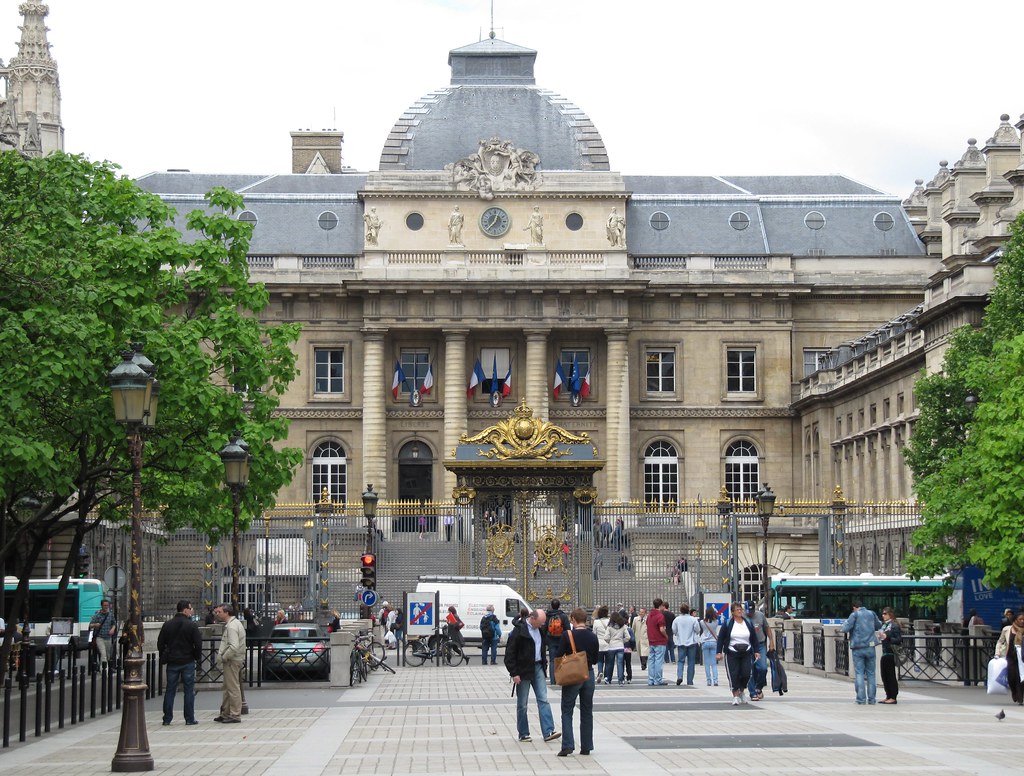
Critics allege recent amendments approved by France’s Senate to an anti-separatism bill infringe on civil liberties and reflect rising Islamophobia among French political elites.
The amendments were offered to a broader anti-separatism bill backed by French President Emmanuel Macron in response to recent terrorist attacks. The bill is intended to strengthen France’s policy of strict secularism. In particular, the French political elites widely viewed the murder of Samuel Paty, a public school teacher executed by 18-year-old Abdoullakh Anzorov after using cartoons of the Prophet Muhammed in a class, as an attack on France’s secularist tradition.
The Senate-approved amendments include controversial provisions that would ban girls under the age of 18 from wearing a hijab and prohibit hijab-wearing parents from accompanying school trips. Critics condemn the bill for regulating girls’ bodies and also question the age demarcation in the Senate amendment, noting that the Senate recently backed a bill to impose 15 as the age of consent in France.
To be enacted, the amendments would have to be approved by France’s lower parliamentary house, the National Assembly. The amendments face uncertain prospects in the Assembly where Macron’s La République En Marche! Party holds the largest bloc of seats. However, the party and Macron’s rightward shift in the last few months fuel concern.
Even if the amendments were to be included by the National Assembly in the final bill, experts contend that they would likely be struck down by France’s constitutional council.
Lurking in the background of this debate is a charged political environment about France’s secularist tradition and the looming presidential election in 2022.
Like the United States, France’s Constitution requires religious neutrality on the part of the state. This tradition in France is known as laïcité. Laïcité is a term commentators have struggled to translate into English. Its intended purpose is to impose a strict separation between religion and public policy. Different historical and cultural experiences underpin the American and French conceptions of the separation of religion and state.
Both originate in the intellectual ferment of the Enlightenment. Whereas the historical roots of the American principle of separation of church and state are rooted in a conception of individual religious freedom, laïcité is rooted in the idea of collective freedom from religious domination. In the French context, laïcité is historically identified as being in opposition to the traditionally powerful role that the Catholic Church played in France.
During the convulsions of the French Revolution, the first glimpses of a laïcité policy are visible in legislation advanced in 1795 but were quickly discarded in the midst of political turmoil.
The policy would resurface after the dissolution of the Second French Empire and the formation of the French Third Republic in 1870. Opponents of the Catholic Church’s continuing role in French politics successfully passed a version of laïcité in 1905 and the principle has largely proven a pillar of the French political system since. Both the Constitution of Fourth Republic and the current Fifth Republic enshrine laïcité.
Though the policy was initially entrenched as a bulwark against Catholic influence, as France’s Muslim population has grown to one of the largest in Europe, fraught debates began between Islam and laïcité in French society. This ongoing debate between laïcité and Islam has drawn repeated accusations of Islamophobia on the part of the French government by critics in the past 30 years.
In seeking election in 2017 and during his first years in office, Macron cultivated a personal image as a political moderate and social liberal. However, following Islamist-inspired terrorist attacks, Macron has shifted towards the right.
To orchestrate and serve as a symbol of this governmental shake-up, Macron elevated Gérald Darmanin, a youthful lightning rod of French conservatism, to the powerful Ministry of Interior.
This position – a combination of the duties of the Attorney General and the Secretary of Homeland Security in the U.S. who also has charge over France’s police force – is one of the most prominent in France.
Darmanin remains under investigation for a 2009 rape allegation as well, drawing criticism to Macron for selecting him to head one of the most powerful ministries in France.
Moreover, Darmanin has polarized the electorate with staunch support for French police that draws strong support from powerful police unions while alienating much of the left. Further, critics accuse Darmanin of playing into Islamophobia with inflammatory rhetoric and action, such as criticizing halal shelves in stores.
Darmanin’s appointment and tenure already have proven to be controversial. Loathed by the left for many of his stances, Darmanin is viewed suspiciously by the right for his defection from the traditional conservative party, Les Républicains, to join Macron. Darmanin remains close to former conservative French president, Nicolas Sarkozy.
In a vivid illustration of the Macron Administration’s rightward shift, Darmanin recently accused Le Pen of being soft on radical Islam.
Many have portrayed the anti-separatism bill as a strategy on the part of Macron ahead of next year’s presidential election. Analysts predict that Macron’s most formidable opponent will be Marine Le Pen, the leader of the far-right National Rally Party.
Facing a fractured field on the left, pundits predict Macron is trying to lure some right-leaning voters away from Le Pen through taking actions on some of the far right’s focal issues.
This has included rhetorical changes to emphasize law and order and the introduction of this anti-separatism legislation that many see as explicitly targeting Islam. Macron and his ministers have also begun warning against “Islamo-leftism” in speeches. Macron also supports a controversial security bill that would toughen restrictions on filming police.
Political experts and analysts warn Macron’s rightward shift risks alienating those on the left who Macron needs to turn out in a run-off election against Le Pen. In response to Macron’s strategy and recent tactics, critics repeat versions of Macron’s past statements, cautioning against weaponizing laïcité.
